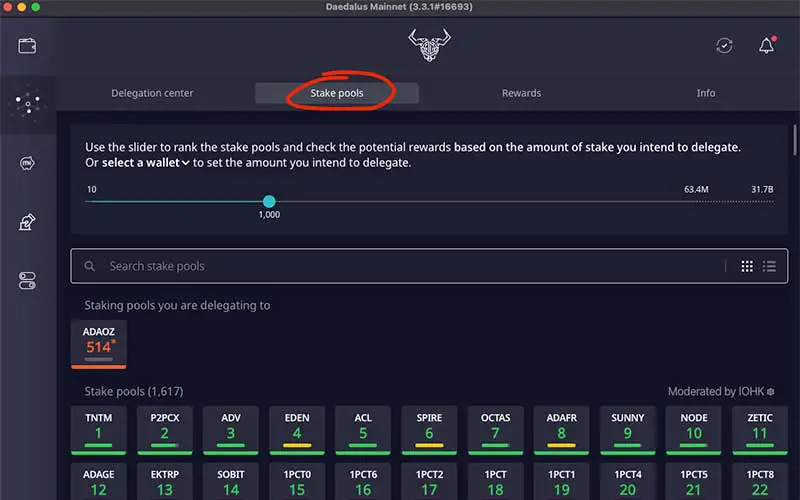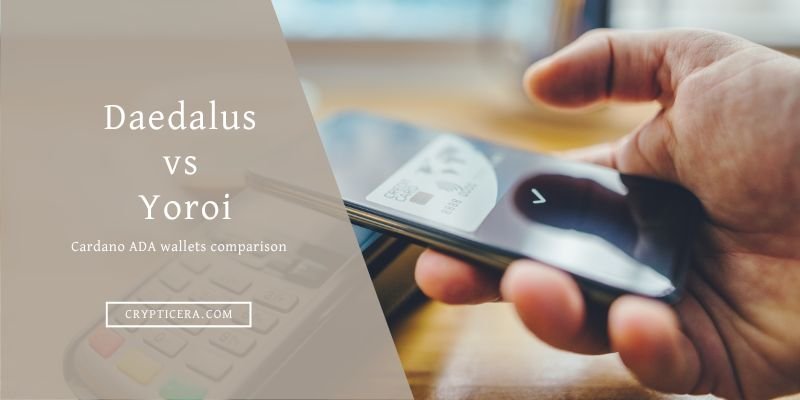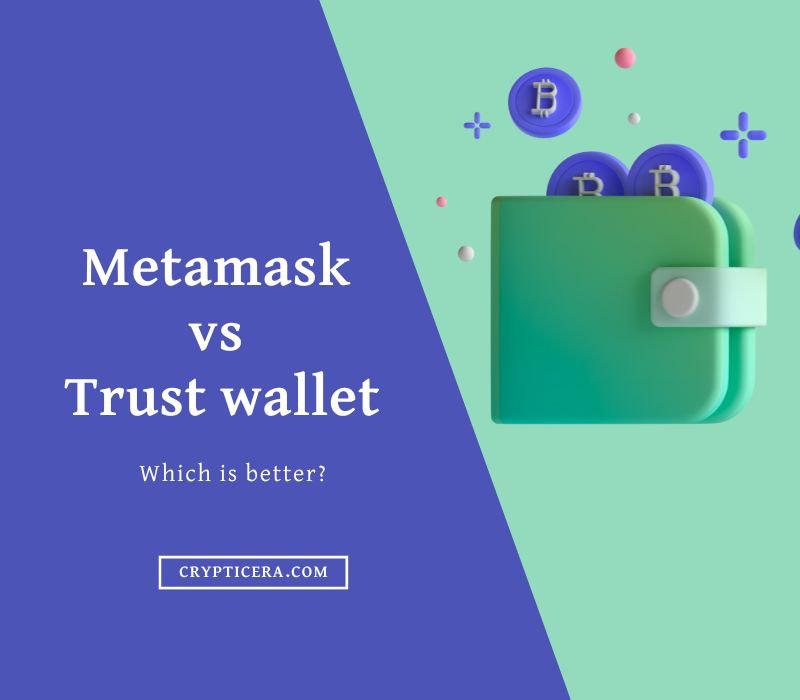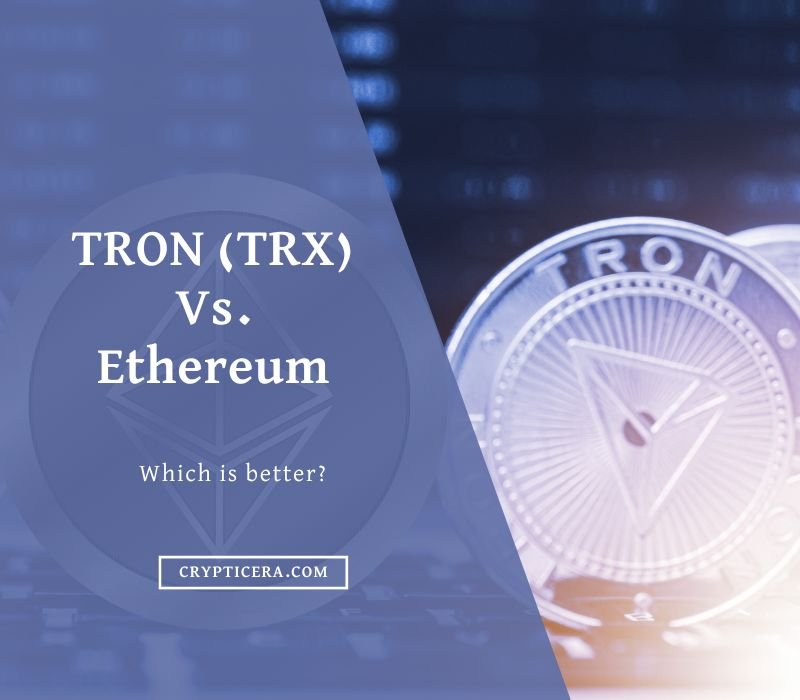If you’re an ADA holder or interested in the Cardano ecosystem, you may be wondering which wallet to use to store, send, and receive ADA. Two of the most popular wallets for Cardano are Daedalus and Yoroi.
In this guide, we’ll take a closer look at each wallet and compare their features to help you make an informed decision on which one is right for you.
Key Takeaways:
- Daedalus is a full-node wallet while Yoroi is a light-client wallet.
- Daedalus requires users to download the entire blockchain while Yoroi doesn’t.
- Both wallets use advanced cryptography to secure funds.
- Daedalus has more features for advanced users while Yoroi is simpler and easier to use.
Daedalus and Yoroi Wallet Overview
Daedalus is a full-node wallet that downloads and stores the entire Cardano blockchain, which allows for complete control and security of your ADA. It also offers advanced features such as paper wallet generation, transaction metadata, and support for Cardano’s smart contracts
Read: Daedalus Wallet review
Yoroi is a lightweight wallet for Cardano that was developed by EMURGO, one of Cardano’s founding entities. Unlike Daedalus, Yoroi does not require users to download and store the entire Cardano blockchain. Instead, it connects to a full node that is hosted by EMURGO, making it faster and more efficient. It is ideal for those who want a simple and easy-to-use wallet for everyday transactions.
Daedalus vs Yoroi: Similarities and Differences
| Features | Daedalus Wallet | Yoroi Wallet |
|---|---|---|
| Supported Platforms | Windows, macOS, Linux | Windows, macOS, Linux, iOS, Android |
| Setup Time | 1-2 hours | Instant |
| Seed Phrase Storage | Local | Local |
| Power Consumption | Significant | Minimal |
| Trustless Operation | Fully trustless with the local node | Trust on EMURGO’s hosted full node |
| Staking & Delegation | Yes | Yes |
| Multi-Wallet | Yes | Yes (mobile version) |
| Backup & Restoration | 24-word mnemonic phrase | 15-word mnemonic phrase |
| ADA Transactions | Yes | Yes |
| Anonymity | Advanced | Basic |
| Languages Supported | English, Japanese | English, Japanese, Simplified Chinese |
| Customer Support | Yes | Yes |
| Smart Contract Support | Built-in | No |
| Storage Space | 5-6 GB | 50-120 MB |
| Hardware Wallet Support | Ledger and Trezor | No |
The Complete Comparison between Cardano (ADA) Wallets
Supported Platforms
Daedalus is available for Windows, macOS, and Linux operating systems. On the other hand, Yoroi is available for Windows, macOS, Linux, iOS, and Android. This makes Yoroi a more accessible wallet since it can be used on mobile devices.
Setup Time
Setting up Daedalus can take anywhere from 1 to 2 hours since it requires users to download and validate the entire Cardano blockchain. On the other hand, setting up Yoroi is almost instant since it connects to a hosted full node.
Trustless Operation
One of the key advantages of Daedalus is that it operates in a fully trustless manner. Since it downloads and stores a complete copy of the Cardano blockchain, it does not rely on a third party to verify transactions. Yoroi, on the other hand, relies on a hosted full node that is operated by EMURGO. This means that users need to trust EMURGO to operate the full node in a secure and reliable manner.
Staking and Delegation

Both Daedalus and Yoroi support staking and delegation, but these features will be added to the wallets when Cardano’s Shelley release is launched. Once these features are added, users will be able to delegate their ADA to a stake pool and earn rewards for participating in the network.
Multi-Wallet Management
Daedalus supports the management of multiple wallets, making it easy for users to organize their ADA holdings. Yoroi also supports multi-wallet management, but this feature is only available on its mobile version.
Backup and Restoration
Both Daedalus and Yoroi use mnemonic phrases to back up and restore wallets. However, Daedalus uses a 24-word mnemonic phrase while Yoroi uses a 15-word mnemonic phrase. It is important to keep these phrases secure since they can be used to restore access to your wallet if you lose your device or forget your password.
Storage Space Required
Since Daedalus downloads and stores a complete copy of the Cardano blockchain, it requires a significant amount of storage space. At the time of writing, the Cardano blockchain is approximately 6.5 GB. On the other hand, Yoroi does not require users to download the entire blockchain and only requires a few megabytes of storage space.
Privacy
Daedalus offers advanced privacy features, while Yoroi only offers basic privacy features. Daedalus users can choose to include transaction metadata or keep it private, while Yoroi does not support transaction metadata.
Language Support
Daedalus supports English and Japanese, while Yoroi supports English, Japanese, Simplified Chinese, Traditional Chinese, Korean, Russian, Spanish, French, German, and Italian.
Daedalus vs Yoroi: Fund Security
Daedalus and Yoroi are secure wallets that use advanced security measures to protect user funds. The main difference between the two wallets is that Daedalus stores user funds locally, while Yoroi stores user funds on a remote server.
Both Daedalus and Yoroi have undergone code auditing by third-party security experts to ensure that they are free from vulnerabilities and security flaws. The code audits for both wallets have been completed successfully, and no major security issues were found.
Regular updates also ensure that the wallets are up-to-date with the latest security features and technologies.
Daedalus vs Yoroi: Hardware Wallet Compatibility
Daedalus is a full-node wallet that is compatible with two hardware wallets, Ledger and Trezor. Yoroi is also compatible with two hardware wallets, Ledger and Trezor.
These hardware wallets provide an additional layer of security for users’ funds, as private keys are stored offline in the hardware wallet.
You must first download and install the wallet application on your computer to use Daedalus or Yoroi with a Ledger Nano X or Trezor Model T. Then connect the hardware wallet to your computer and follow the on-screen instructions to set up the hardware wallet and link it with the Daedalus wallet.
Which is Better Daedalus or Yoroi
Daedalus and Yoroi both are reliable and secure wallets for storing your ADA. If you are looking for a wallet that can be used on mobile devices, has minimal power consumption, and supports multiple languages, then Yoroi would be the better choice.
However, if you are looking for a wallet that offers advanced privacy features, allows you to run a local full node, and has built-in support for smart contracts, then Daedalus would be the better choice.
Pros and Cons of Daedalus Wallet
Pros
- Secure storage for your cryptocurrencies
- Developed by IOHK, a well-respected blockchain development company
- Multi-platform support (Windows, MacOS, Linux)
- User-friendly interface
- Supports ADA Staking
Cons
- Slow initial blockchain synchronization
- High system resource usage during blockchain synchronization
- Limited support for third-party integrations
- No mobile support
Pros and Cons of Yoroi Wallet
Pros
- User-friendly and easy to use.
- Lightweight and doesn’t take up a lot of storage space.
- Available on multiple platforms.
- Supports staking for ADA holders.
- Uses a hierarchical deterministic wallet structure.
Cons
- Only supports ADA.
- Relatively new and has fewer features.
- A hot wallet increases the risk of hacks.
- Reports of vulnerabilities in the past.
Can you recover Daedalus on Yoroi?
Yes, it is possible to migrate your Cardano (ADA) wallet from Daedalus to Yoroi. Here are the steps you can follow:
- First, make sure you have the latest version of Yoroi installed on your device.
- Open Daedalus and create a new wallet. Transfer your funds from your existing Daedalus wallet to this new wallet.
- In Yoroi, select “Add Wallet” and choose “Import Daedalus Wallet.”
- Enter your Daedalus wallet recovery phrase and follow the prompts to complete the migration process.
- Once the migration is complete, your ADA balance will appear in your Yoroi wallet.
Final Thoughts
In conclusion, both Daedalus and Yoroi are excellent Cardano (ADA) wallets with their unique features and benefits.
Daedalus is more suitable for advanced users who require advanced functionalities, such as staking, while Yoroi is more suitable for beginners who require a user-friendly interface and mobile accessibility.
No matter which wallet you choose, it is important to ensure that you are using a secure and reputable wallet to protect your ADA investment.
FAQs
Why use Daedalus over Yoroi?
Daedalus is a full-node wallet that allows for the downloading of the entire blockchain, providing complete control and security over the user’s funds. Yoroi, on the other hand, is a light wallet that is designed for ease of use and portability.
Can I switch from Daedalus to Yoroi?
Yes, it is possible to switch from Daedalus to Yoroi. Both wallets use the same Cardano blockchain, so you can transfer your ADA between them without any issues. To do this, you will need to create a Yoroi wallet and follow the instructions to transfer your ADA from your Daedalus wallet to your new Yoroi wallet.



